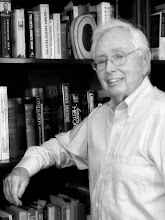Thursday, March 20, 2014
Origins of Clinical Psychology
Around 1900, Henry Goddard, a research psychologist at New Jersey's Vineland Training School had the Binet Simon scale for measuring intelligence translated into English and began using the procedure for evaluating mentally challenged residents at Vineland. AA few years later Lewis Terman, a psychology professor at Stanford University, revised the scale to become the Stanford Binet. The procedure was widely acce[ted as an objective procedure for measuring mental abilities. Prior to the development of these scale mental ability testing had been limited to measuring sensory acuity--a blind alley which did not predict academic or occupational achievement. Clinics for assessing mental abilities were established at many and hospitals. At New York City's Bellevue Hospital, a psychiatric facility, psychologist David Wechsler developed and standardized an alternative method of testing he labeled the Wechsler Bellevue. Psychology departments began training psychometricians,who were widely accepted in schools for assessing student abilities. However, psychologists were not widely accepted for providing counseling or psychotherapy for emotional problems.
It wasn't until World War II that a shortage of psychiatrists in the armed forces led the Veteran's Administration to begin training psychologists to perform and therapy. Once psychologists became accepted in this role they began to apply other treatment models. John Watson at Johns Hiopkins had laid the roots for behavioral approaches in treating fears and anxiety. Karl Rogers established principles and techniques for "nondirective counseling." South African psychiatrist Joseph Wolpe came to Philadelphia bringing techniques of treatment he believed derived from Pavlovian principles of conditioning. In the 1960s and '70s, Albert Ellis in New York City and Aaron Beck, at The University of Pennsylvania cognitive therapy as an and proven treatment approach. Clinical Psychology had now proven itself as a useful and effective mental health resource.
Subscribe to:
Post Comments (Atom)

No comments:
Post a Comment